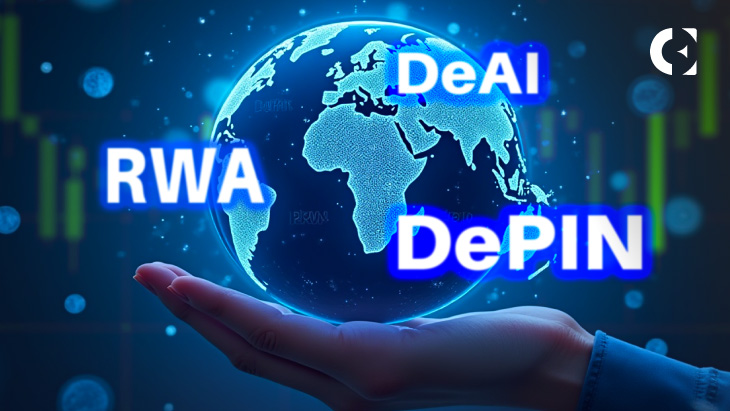Exploring the Growth of RWAs, DePINs, and DeAI in 2025

In May 2025, the tokenization of real-world assets (RWAs) has surged, reaching a valuation of $22.5 billion, with projections suggesting it could hit $50 billion by the end of the year. This growth is largely attributed to the increasing integration of decentralized finance (DeFi) with traditional financial assets, such as real estate and government bonds. Notably, institutional investors like BlackRock and Goldman Sachs are playing a pivotal role in this expansion. The U.S. Securities and Exchange Commission (SEC) has also shown a commitment to this sector by hosting a tokenization roundtable, signaling a positive regulatory environment for RWAs. Analysts predict that the RWA market could grow to a staggering $10 trillion by 2030, highlighting its potential to dominate the crypto landscape in the coming years.
Alongside RWAs, the Decentralized Physical Infrastructure Networks (DePIN) market is projected to reach $3.5 trillion by 2028. DePIN aims to revolutionize physical infrastructure by utilizing blockchain technology to create decentralized networks for computing, storage, and connectivity. This innovative approach could disrupt various industries, including telecommunications and IoT. Leading projects such as Theta Network and Akash Network are at the forefront, providing cost-effective solutions for AI workloads and IoT applications. The growing interest in decentralized energy grids and smart cities further emphasizes the importance of DePINs in the evolution of Web3.
The Decentralized Artificial Intelligence (DeAI) sector is also on the rise, merging blockchain with AI to foster transparent and censorship-free ecosystems. With the AI and RWA crypto token market already valued at over $65 billion, DeAI is poised for significant growth, driven by advancements in decentralized computing. Platforms like SingularityNET and Fetch.ai are leading the way in creating decentralized AI models. The interconnectedness of RWAs, DePINs, and DeAI suggests a synergistic relationship that could redefine the future of the crypto cycle in 2025, provided that challenges such as scalability and regulatory hurdles are effectively addressed.
Related News





